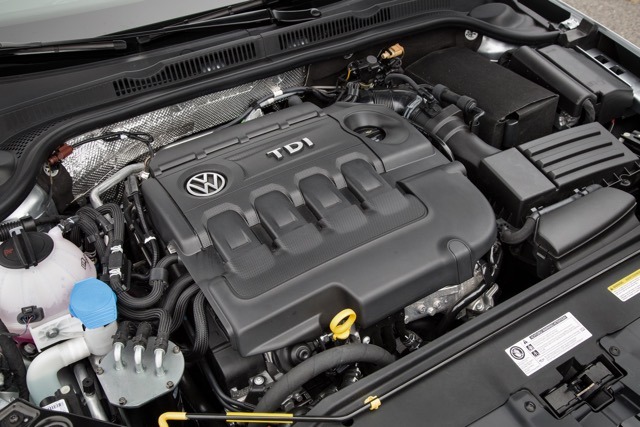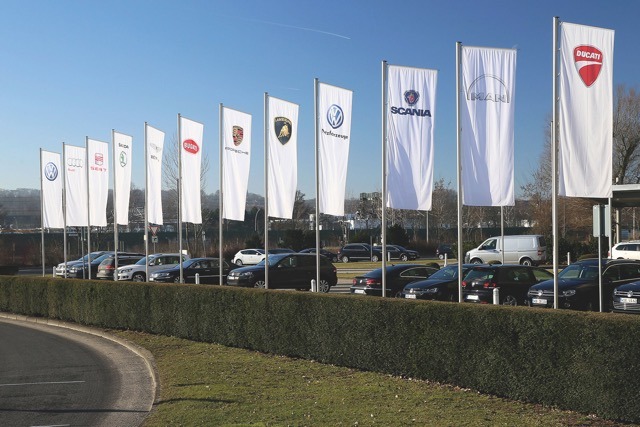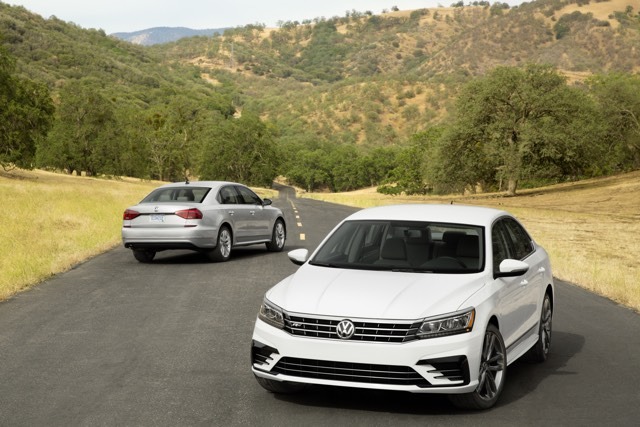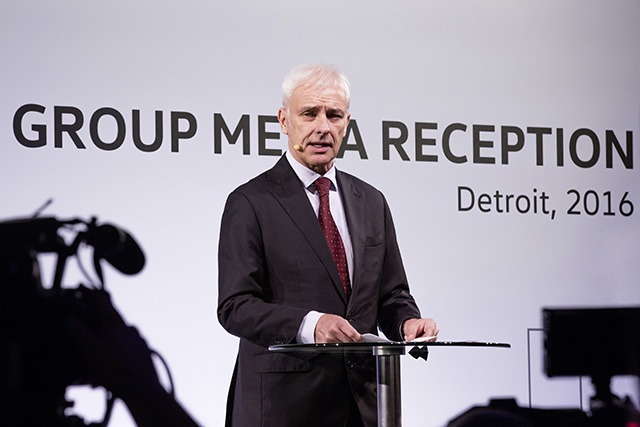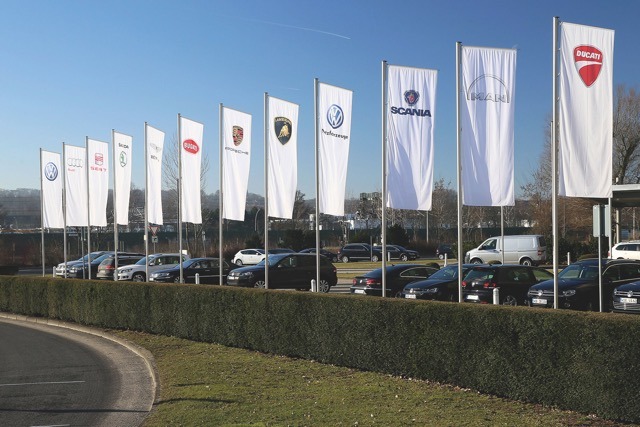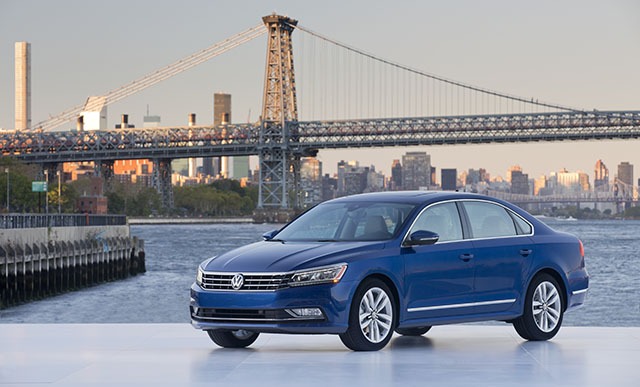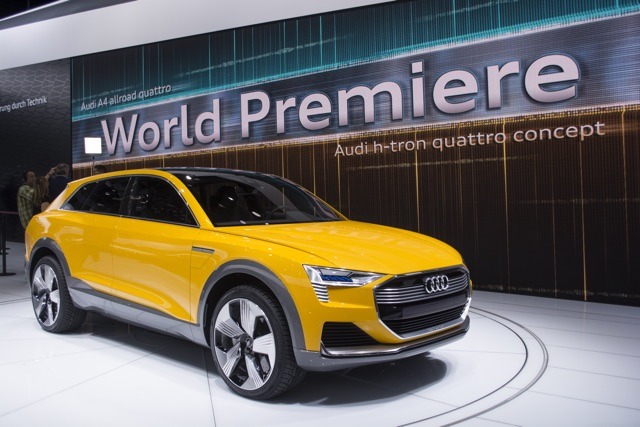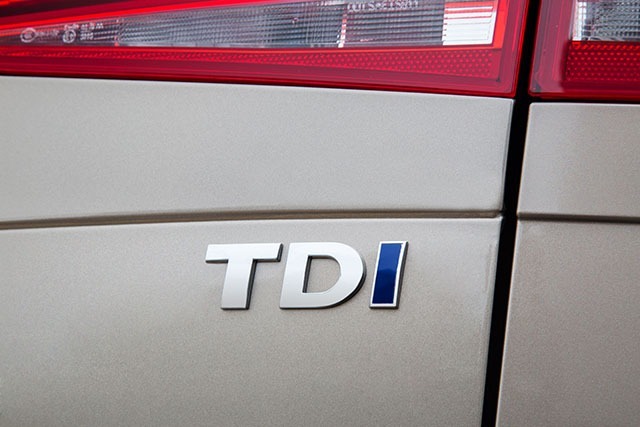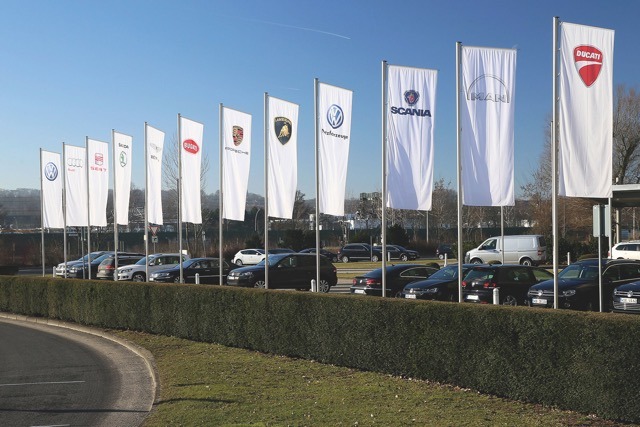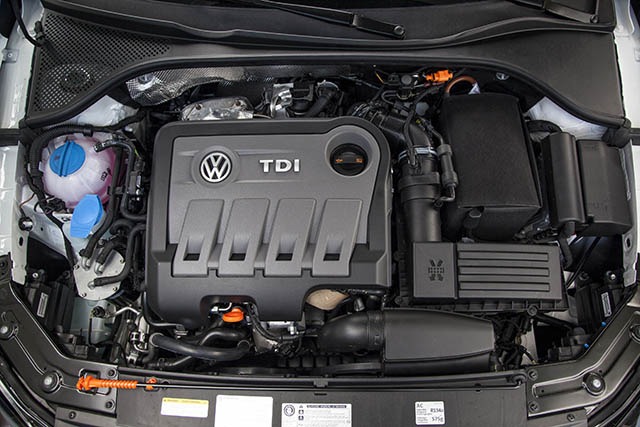Search the Community
Showing results for tags 'Diesel Scandal'.
-
Former Volkswagen CEO Martin Winterkorn is already being investigated by German prosecutors over market manipulation because of the diesel emission scandal. But now, he finds himself under a new investigation by prosecutors on the suspicion of fraud. Reuters reports that prosecutors in Braunschweig believe Winterkorn knew about the cheat used on the 2.0L TDI well before the timeframe he has admittedly publicly. This suspicion comes as the result of numerous interviews with witnesses and suspects, along with raids on 28 houses and offices this week. "Sufficient indications have resulted from the investigation, particularly the questioning of witnesses and suspects as well as the analysis of seized data, that the accused (Winterkorn) may have known about the manipulating software and its effects sooner than he has said publicly," prosecutors said in a statement. At a hearing last week in Berlin, Winterkorn declined to say when he first learned about the cheat, citing the investigation being done by prosecutors. "For now, Dr. Winterkorn is sticking with the statement he made before a German parliamentary committee of inquiry (into the scandal) on Jan. 19," said Felix Doerr, a lawyer representing Winterkorn in an email to Reuters. Prosecutors also revealed that the number of people possibly involved in the scandal has risen from 21 to 37, including Winterkorn. Source: Reuters
- 1 comment
-
- as the diesel emits
- diesel scandal
-
(and 4 more)
Tagged with:
-
Former Volkswagen CEO Martin Winterkorn is already being investigated by German prosecutors over market manipulation because of the diesel emission scandal. But now, he finds himself under a new investigation by prosecutors on the suspicion of fraud. Reuters reports that prosecutors in Braunschweig believe Winterkorn knew about the cheat used on the 2.0L TDI well before the timeframe he has admittedly publicly. This suspicion comes as the result of numerous interviews with witnesses and suspects, along with raids on 28 houses and offices this week. "Sufficient indications have resulted from the investigation, particularly the questioning of witnesses and suspects as well as the analysis of seized data, that the accused (Winterkorn) may have known about the manipulating software and its effects sooner than he has said publicly," prosecutors said in a statement. At a hearing last week in Berlin, Winterkorn declined to say when he first learned about the cheat, citing the investigation being done by prosecutors. "For now, Dr. Winterkorn is sticking with the statement he made before a German parliamentary committee of inquiry (into the scandal) on Jan. 19," said Felix Doerr, a lawyer representing Winterkorn in an email to Reuters. Prosecutors also revealed that the number of people possibly involved in the scandal has risen from 21 to 37, including Winterkorn. Source: Reuters View full article
- 1 reply
-
- as the diesel emits
- diesel scandal
-
(and 4 more)
Tagged with:
-
As we reported yesterday, Volkswagen has decided against revealing the preliminary results of their internal investigation as it would bring “unacceptable risks” to the company. It might have been a good idea as a new wrinkle has appeared in the diesel emission scandal. The New York Times has learned from two sources that a top technology executive prepared a PowerPoint presentation showing the automaker could fool the EPA's emission testing. The presentation was only a few pages long and explained the process of how the EPA did it. The presentation also talked about how the test could be fooled by a piece of code in the engine management software, turning on equipment that would reduce the amount of emissions produced. The obvious question is why? Back in 2006, engineers at Volkswagen's r&d complex realized that the emission equipment in their new diesel engine would wear out faster if it was set up for the U.S. emission standards. This presentation provided a possible solution. It is unknown who and how many people saw this presentation. But it brings doubt into Volkswagen's claim that a small group of employees knew about the cheat. The Times also reports that Martin Winterkorn - the former chief executive for Volkswagen - rejected proposals from low-ranking employees. According to sources who attended meetings with the management board, the proposals were tossed out as it would increase the price of Volkswagen vehicles. Unsurprisingly, Volkswagen declined to comment. Source: The New York Times View full article
- 1 reply
-
- As the Diesel Emits
- Cheating
- (and 4 more)
-
As we reported yesterday, Volkswagen has decided against revealing the preliminary results of their internal investigation as it would bring “unacceptable risks” to the company. It might have been a good idea as a new wrinkle has appeared in the diesel emission scandal. The New York Times has learned from two sources that a top technology executive prepared a PowerPoint presentation showing the automaker could fool the EPA's emission testing. The presentation was only a few pages long and explained the process of how the EPA did it. The presentation also talked about how the test could be fooled by a piece of code in the engine management software, turning on equipment that would reduce the amount of emissions produced. The obvious question is why? Back in 2006, engineers at Volkswagen's r&d complex realized that the emission equipment in their new diesel engine would wear out faster if it was set up for the U.S. emission standards. This presentation provided a possible solution. It is unknown who and how many people saw this presentation. But it brings doubt into Volkswagen's claim that a small group of employees knew about the cheat. The Times also reports that Martin Winterkorn - the former chief executive for Volkswagen - rejected proposals from low-ranking employees. According to sources who attended meetings with the management board, the proposals were tossed out as it would increase the price of Volkswagen vehicles. Unsurprisingly, Volkswagen declined to comment. Source: The New York Times
- 1 comment
-
- As the Diesel Emits
- Cheating
- (and 4 more)
-
Volkswagen was planning to release the preliminary findings of its internal investigation into the diesel emission scandal this month. But now, the company has scrapped those plans. In a statement, the German automaker cites strong objections from their lawyers and “unacceptable risks” to the company. But there might be more this than what Volkswagen is saying. Last week, Volkswagen finally reached a deal with the U.S. Government over the emission mess. By releasing the results, it might put Volkswagen in a difficult sport. “Publishing such a preliminary report would not only endanger the complex and confidential settlement talks [with authorities and plaintiffs], it would also have a negative effect on ongoing investigations as individuals who have yet to be questioned could align their statements with the contents of the report. We must avoid this,” said Volkswagen board director Wolfgang Porsche to reporters in Wolfsburg. It isn't being helped that the investigation has hit a few bumps in the road. According to Automotive News, the Jones Day law firm - hired by Volkswagen to do the investigation - have so far failed define key points of the scandal. Bloomberg goes on to say that the firm has been confounded by engineers using code words to describe the illegal software and outdated computer systems. The final investigation report is not expected until the fourth quarter of the fourth year. Source: Automotive News (Subscription Required), Bloomberg, Volkswagen Press Release is on Page 2 Statement by Volkswagen AG regarding the status of the comprehensive investigation in connection with the diesel matter At the end of September 2015, the Supervisory Board of Volkswagen Aktiengesellschaft assigned law firm Jones Day with a comprehensive investigation in connection with the diesel matter. This investigation is already far advanced and is being pursued intensely. For this purpose, approximately 65 million documents were submitted for electronic review, of which more than 10 million were forwarded for review by Volkswagen's lawyers. Around 450 interviews have also been conducted about the diesel matter; dozens of additional interviews are planned. Based on the current assessment, Jones Day expects the investigation to conclude in the fourth quarter of 2016. After a thorough examination of the legal situation, the Supervisory Board and the Management Board of Volkswagen have nevertheless had to recognize that a disclosure of interim results of the investigation at this point in time would present unacceptable risks for Volkswagen and, therefore, cannot take place now. This decision is based on the assessment of the U.S. law firms retained by Volkswagen (Sullivan & Cromwell and Jones Day), which have both strongly advised against such a disclosure independently of each other. Volkswagen regrets that it has had to move away from the original plan to disclose interim results of the investigation by the end of April. The reasons lie in the following developments in proceedings involving Volkswagen in connection with the diesel matter in the United States: Volkswagen's complex negotiations with a large number of parties in the United States (including private plaintiffs and multiple U.S. regulators, including the Environmental Protection Agency (EPA), the California Air Resources Board (CARB), the Federal Trade Commission, the Attorneys General of each of the 50 states, and, in particular, the U.S. Department of Justice) have entered a decisive phase sooner than anticipated and require Volkswagen to maintain the highest degree of confidentiality. The extensive and confidential nature of these negotiations and Volkswagen's cooperation with the Department of Justice restrict Volkswagen´s ability to comment further on necessarily tentative results of the continuing investigation. The further disclosure or characterization of interim results, which are currently available, would likely prejudice the rest of the investigation at this time, in particular because individuals who have yet to be questioned could align their statements with the contents of the interim report. In counsel's view, a disclosure would also significantly impair Volkswagen's cooperation with the Department of Justice and weaken Volkswagen's position in any remaining proceedings. In counsel's view, such disclosure could also jeopardize the credit that Volkswagen may expect to receive in the event of its full cooperation with the Department of Justice. According to Volkswagen's legal advisers, this could have very substantial negative financial consequences. lf a full settlement can be achieved with the Department of Justice, the Supervisory Board and the Management Board currently expect that a detailed statement of the facts of this matter will be made public in the U.S. at that time. This is because the settlement of a criminal investigation with the Department of Justice is customarily accompanied by a detailed statement of facts, agreed to by the parties. Volkswagen explicitly regrets that it is not able to publish interim results by the end of April as initially planned. However, due to the reasons outlined above, the Management Board and the Supervisory Board see themselves forced to refrain from a disclosure in the interest of the company.
- 2 comments
-
- As the Diesel Emits
- Diesel Scandal
- (and 4 more)
-
Volkswagen was planning to release the preliminary findings of its internal investigation into the diesel emission scandal this month. But now, the company has scrapped those plans. In a statement, the German automaker cites strong objections from their lawyers and “unacceptable risks” to the company. But there might be more this than what Volkswagen is saying. Last week, Volkswagen finally reached a deal with the U.S. Government over the emission mess. By releasing the results, it might put Volkswagen in a difficult sport. “Publishing such a preliminary report would not only endanger the complex and confidential settlement talks [with authorities and plaintiffs], it would also have a negative effect on ongoing investigations as individuals who have yet to be questioned could align their statements with the contents of the report. We must avoid this,” said Volkswagen board director Wolfgang Porsche to reporters in Wolfsburg. It isn't being helped that the investigation has hit a few bumps in the road. According to Automotive News, the Jones Day law firm - hired by Volkswagen to do the investigation - have so far failed define key points of the scandal. Bloomberg goes on to say that the firm has been confounded by engineers using code words to describe the illegal software and outdated computer systems. The final investigation report is not expected until the fourth quarter of the fourth year. Source: Automotive News (Subscription Required), Bloomberg, Volkswagen Press Release is on Page 2 Statement by Volkswagen AG regarding the status of the comprehensive investigation in connection with the diesel matter At the end of September 2015, the Supervisory Board of Volkswagen Aktiengesellschaft assigned law firm Jones Day with a comprehensive investigation in connection with the diesel matter. This investigation is already far advanced and is being pursued intensely. For this purpose, approximately 65 million documents were submitted for electronic review, of which more than 10 million were forwarded for review by Volkswagen's lawyers. Around 450 interviews have also been conducted about the diesel matter; dozens of additional interviews are planned. Based on the current assessment, Jones Day expects the investigation to conclude in the fourth quarter of 2016. After a thorough examination of the legal situation, the Supervisory Board and the Management Board of Volkswagen have nevertheless had to recognize that a disclosure of interim results of the investigation at this point in time would present unacceptable risks for Volkswagen and, therefore, cannot take place now. This decision is based on the assessment of the U.S. law firms retained by Volkswagen (Sullivan & Cromwell and Jones Day), which have both strongly advised against such a disclosure independently of each other. Volkswagen regrets that it has had to move away from the original plan to disclose interim results of the investigation by the end of April. The reasons lie in the following developments in proceedings involving Volkswagen in connection with the diesel matter in the United States: Volkswagen's complex negotiations with a large number of parties in the United States (including private plaintiffs and multiple U.S. regulators, including the Environmental Protection Agency (EPA), the California Air Resources Board (CARB), the Federal Trade Commission, the Attorneys General of each of the 50 states, and, in particular, the U.S. Department of Justice) have entered a decisive phase sooner than anticipated and require Volkswagen to maintain the highest degree of confidentiality. The extensive and confidential nature of these negotiations and Volkswagen's cooperation with the Department of Justice restrict Volkswagen´s ability to comment further on necessarily tentative results of the continuing investigation. The further disclosure or characterization of interim results, which are currently available, would likely prejudice the rest of the investigation at this time, in particular because individuals who have yet to be questioned could align their statements with the contents of the interim report. In counsel's view, a disclosure would also significantly impair Volkswagen's cooperation with the Department of Justice and weaken Volkswagen's position in any remaining proceedings. In counsel's view, such disclosure could also jeopardize the credit that Volkswagen may expect to receive in the event of its full cooperation with the Department of Justice. According to Volkswagen's legal advisers, this could have very substantial negative financial consequences. lf a full settlement can be achieved with the Department of Justice, the Supervisory Board and the Management Board currently expect that a detailed statement of the facts of this matter will be made public in the U.S. at that time. This is because the settlement of a criminal investigation with the Department of Justice is customarily accompanied by a detailed statement of facts, agreed to by the parties. Volkswagen explicitly regrets that it is not able to publish interim results by the end of April as initially planned. However, due to the reasons outlined above, the Management Board and the Supervisory Board see themselves forced to refrain from a disclosure in the interest of the company. View full article
- 2 replies
-
- As the Diesel Emits
- Diesel Scandal
- (and 4 more)
-
Towards the end of February, U.S. District Judge Charles Breyer gave Volkswagen a deadline. On March 24th, the German automaker would have to give a definitive answer on the status of a fix for nearly 600,000 diesel vehicles. At a hearing this week, Breyer has moved the deadline to April 21st. According to Reuters, both the EPA and Volkswagen said at the hearing they are making progress on a reaching an agreement. But there are still a number of issues to work out. A possible issue is whether the EPA would accept a partial fix on some Volkswagen diesel vehicles. Earlier this month, an official from CARB said it might not be possible for Volkswagen to fully fix some of the diesel models involved in the scandal. But Judge Breyer told Volkswagen this was their only extension. If they don't reach a deal with the EPA by April 21st, Breyer would bring this issue to a trial. Source: Reuters View full article
- 9 replies
-
- As the Diesel Emits
- Deadline
-
(and 5 more)
Tagged with:
-
Towards the end of February, U.S. District Judge Charles Breyer gave Volkswagen a deadline. On March 24th, the German automaker would have to give a definitive answer on the status of a fix for nearly 600,000 diesel vehicles. At a hearing this week, Breyer has moved the deadline to April 21st. According to Reuters, both the EPA and Volkswagen said at the hearing they are making progress on a reaching an agreement. But there are still a number of issues to work out. A possible issue is whether the EPA would accept a partial fix on some Volkswagen diesel vehicles. Earlier this month, an official from CARB said it might not be possible for Volkswagen to fully fix some of the diesel models involved in the scandal. But Judge Breyer told Volkswagen this was their only extension. If they don't reach a deal with the EPA by April 21st, Breyer would bring this issue to a trial. Source: Reuters
- 9 comments
-
- As the Diesel Emits
- Deadline
-
(and 5 more)
Tagged with:
-
Over the past six months and numerous articles with the ‘As the Diesel Emits’ in the title, we are no closer to have a fix for the around 600,000 Volkswagen diesel vehicles with illegal emission software. Instead, we have been treated a first-rate performance of ‘How not to handle a crisis’. From Volkswagen’s delay of admitting the illegal software to CEO Matthias Muller seeming very oblivious to what happening in an interview. It seems the German automaker is getting one black eye after another. The past month or so has seen the crisis cranked up to eleven. New documents revealed that senior managers, including former CEO Martin Winterkorn, were alerted about the U.S. probing some of their TDI models back in 2014 This was followed up by a letter from last year alerting Winterkorn that the Volkswagen did use a defeat device in their diesel models - two weeks before the official EPA announcement. A U.S. Federal Judge has given Volkswagen until March 24th to give an answer on where they stand on a possible fix. Volkswagen of America CEO and President Michael Horn suddenly stepped down from his position. With Horn’s departure, dealers want answers as to what happens next or a mutiny could happen. Ever since this scandal came to light, there has been a question that has been floating around in my head: Does Volkswagen know how much trouble it is in? On the surface, it seems they do and are trying their best to rectify this issue. But dig a little bit further and there are very troubling signs. For example, the Associate Press last week learned from a couple people that Volkswagen’s management in Germany resisted the plan set by Horn to offer $1,000 in gift cards to owners as a gesture of goodwill. Thankfully management relented and the program was instituted. Then there was Volkswagen’s first proposal to fix the affected vehicles in the U.S. which got rejected by the California Air Resources Board as it was “incomplete, substantially deficient and fall far short of meeting the legal requirements to return these vehicles” to compliance. Since then, Volkswagen has been working on a new solution to present to CARB and the EPA, though we haven’t heard anything about it. These concerns bring up another question about Volkswagen: Do they know what their place in America is? Last September, Automobile Magazine ran an excellent editorial titled Volkswagen Has Never Understood its Place in the U.S. In the piece, the author argues that Volkswagen is seen by many Americans as something out of the mainstream - original Beetle, Microbus, Golf GTI, and their diesel lineup. Because of this, Volkswagen has a small, but loyal fanbase, But Volkswagen sees themselves as something different; a mass-market brand capable of selling many vehicles around. Except in the U.S. A few years ago, Volkswagen set an ambitious goal of selling 800,000 vehicles in the U.S. by 2018. To achieve this goal, the automaker decided to build vehicles tailored to the marketplace. What we ended up with was a Passat and Jetta that were appealing as stale bread because that is what the company thought would sell. At first, the strategy worked as sales of Volkswagen vehicles increased. But in the past couple of years, sales have dropped precipitously. The company has been scratching their heads as to why this is happening. It goes back to Volkswagen not understanding their place in the U.S. That last sentence can be extended further into the diesel emission crisis. The way Volkswagen has handled this crisis is nothing short of disastrous. If you are a company dealing with a massive crisis, the key thing you should be doing is keeping everyone somewhat abreast of what is happening. Volkswagen has barely done this and has given the impression that they are really not doing anything, despite all of the reports saying Volkswagen is conducting an internal investigation and working on a fix. This one quote from the Automobile Magazine editorial partly sums the predicament Volkswagen finds itself in. “That left the small clique of devoted enthusiasts, folks who bought Volkswagens because they were Volkswagens, and often because they were Volkswagen “clean” diesels. These are precisely the people Volkswagen just kicked in the teeth.” They’re not the only group that Volkswagen has caused pain. Dealers who bought into Volkswagen’s vision of being a mass-market brand and spent close to a billion dollars, only to see sales fall apart are not very happy. There also seems to be a disconnect between dealers and Volkswagen as this quote from Bloomberg illustrates, “The suggestion was startling: Maybe VW should give up on selling cars to America’s masses. It was late January, at the Detroit auto show, and Herbert Diess, the global chief of Volkswagen AG’s namesake brand, was sounding out U.S. dealers as the company grappled with the biggest crisis in its modern history. Perhaps, Diess wondered aloud, VW should stop trying to compete with the likes of Toyota Motor Corp. in America and go back to focusing on higher-end models. “It was near crickets in the room,” said Alan Brown, chairman of VW’s U.S. dealer council.” Volkswagen is now at a crossroads with seemingly everyone angry with them in one form or another. There are so many things the company could have done to be in a better place than they are currently. But the Volkswagen’s mindset and not fully understanding the U.S. put them in a the place where they are now. Whether or not they learn from this experience and make the necessary changes to survive remains to be seen. The one thing we are sure about is that Volkswagen lost a lot of trust from various groups because of this scandal. As anyone will tell you, regaining trust is a seemingly impossible task. View full article
- 1 reply
-
- Afterthoughts
- As the Diesel Emits
-
(and 3 more)
Tagged with:
-
Over the past six months and numerous articles with the ‘As the Diesel Emits’ in the title, we are no closer to have a fix for the around 600,000 Volkswagen diesel vehicles with illegal emission software. Instead, we have been treated a first-rate performance of ‘How not to handle a crisis’. From Volkswagen’s delay of admitting the illegal software to CEO Matthias Muller seeming very oblivious to what happening in an interview. It seems the German automaker is getting one black eye after another. The past month or so has seen the crisis cranked up to eleven. New documents revealed that senior managers, including former CEO Martin Winterkorn, were alerted about the U.S. probing some of their TDI models back in 2014 This was followed up by a letter from last year alerting Winterkorn that the Volkswagen did use a defeat device in their diesel models - two weeks before the official EPA announcement. A U.S. Federal Judge has given Volkswagen until March 24th to give an answer on where they stand on a possible fix. Volkswagen of America CEO and President Michael Horn suddenly stepped down from his position. With Horn’s departure, dealers want answers as to what happens next or a mutiny could happen. Ever since this scandal came to light, there has been a question that has been floating around in my head: Does Volkswagen know how much trouble it is in? On the surface, it seems they do and are trying their best to rectify this issue. But dig a little bit further and there are very troubling signs. For example, the Associate Press last week learned from a couple people that Volkswagen’s management in Germany resisted the plan set by Horn to offer $1,000 in gift cards to owners as a gesture of goodwill. Thankfully management relented and the program was instituted. Then there was Volkswagen’s first proposal to fix the affected vehicles in the U.S. which got rejected by the California Air Resources Board as it was “incomplete, substantially deficient and fall far short of meeting the legal requirements to return these vehicles” to compliance. Since then, Volkswagen has been working on a new solution to present to CARB and the EPA, though we haven’t heard anything about it. These concerns bring up another question about Volkswagen: Do they know what their place in America is? Last September, Automobile Magazine ran an excellent editorial titled Volkswagen Has Never Understood its Place in the U.S. In the piece, the author argues that Volkswagen is seen by many Americans as something out of the mainstream - original Beetle, Microbus, Golf GTI, and their diesel lineup. Because of this, Volkswagen has a small, but loyal fanbase, But Volkswagen sees themselves as something different; a mass-market brand capable of selling many vehicles around. Except in the U.S. A few years ago, Volkswagen set an ambitious goal of selling 800,000 vehicles in the U.S. by 2018. To achieve this goal, the automaker decided to build vehicles tailored to the marketplace. What we ended up with was a Passat and Jetta that were appealing as stale bread because that is what the company thought would sell. At first, the strategy worked as sales of Volkswagen vehicles increased. But in the past couple of years, sales have dropped precipitously. The company has been scratching their heads as to why this is happening. It goes back to Volkswagen not understanding their place in the U.S. That last sentence can be extended further into the diesel emission crisis. The way Volkswagen has handled this crisis is nothing short of disastrous. If you are a company dealing with a massive crisis, the key thing you should be doing is keeping everyone somewhat abreast of what is happening. Volkswagen has barely done this and has given the impression that they are really not doing anything, despite all of the reports saying Volkswagen is conducting an internal investigation and working on a fix. This one quote from the Automobile Magazine editorial partly sums the predicament Volkswagen finds itself in. “That left the small clique of devoted enthusiasts, folks who bought Volkswagens because they were Volkswagens, and often because they were Volkswagen “clean” diesels. These are precisely the people Volkswagen just kicked in the teeth.” They’re not the only group that Volkswagen has caused pain. Dealers who bought into Volkswagen’s vision of being a mass-market brand and spent close to a billion dollars, only to see sales fall apart are not very happy. There also seems to be a disconnect between dealers and Volkswagen as this quote from Bloomberg illustrates, “The suggestion was startling: Maybe VW should give up on selling cars to America’s masses. It was late January, at the Detroit auto show, and Herbert Diess, the global chief of Volkswagen AG’s namesake brand, was sounding out U.S. dealers as the company grappled with the biggest crisis in its modern history. Perhaps, Diess wondered aloud, VW should stop trying to compete with the likes of Toyota Motor Corp. in America and go back to focusing on higher-end models. “It was near crickets in the room,” said Alan Brown, chairman of VW’s U.S. dealer council.” Volkswagen is now at a crossroads with seemingly everyone angry with them in one form or another. There are so many things the company could have done to be in a better place than they are currently. But the Volkswagen’s mindset and not fully understanding the U.S. put them in a the place where they are now. Whether or not they learn from this experience and make the necessary changes to survive remains to be seen. The one thing we are sure about is that Volkswagen lost a lot of trust from various groups because of this scandal. As anyone will tell you, regaining trust is a seemingly impossible task.
- 1 comment
-
- Afterthoughts
- As the Diesel Emits
-
(and 3 more)
Tagged with:
-
A new wrinkle has appeared in the Volkswagen diesel scandal. Last week, Daniel Donovan filed suit against Volkswagen of America for wrongful termination and breaking the Michigan Whistleblowers' Protection Act after reporting that the company continuing deleting data after the EPA said to stop. On September 18, the EPA filed a violation notice against Volkswagen's diesel vehicles. Part of that notice required Volkswagen to not delete any more data. Donovan alleges in the suit that workers at Volkswagen Group of America's data processing center in Auburn Hills, MI did not stop till September 21st. Donovan told his supervisor about this and tried to stop the deletions. A couple of months later, Donovan was fired. Donovan claims his firing was due to concerns Volkswagen of him reporting this to authorities. "The circumstances of Mr. Donovan's departure were unrelated to the diesel emissions issue. We believe his claim of wrongful termination is without merit," said Volkswagen in a statement to Autoblog. Unfortunately, we don't know what kind of data was deleted. But if these allegations are proven to be true, it doesn't matter what kind of data it was: Volkswagen violated the order and could be facing punishment for it. Source: Courthouse News Service, Sueddeutsche Zeitung, Reuters, Autoblog View full article
- 3 replies
-
- As the Diesel Emits
- Data Deletion
- (and 6 more)
-
A new wrinkle has appeared in the Volkswagen diesel scandal. Last week, Daniel Donovan filed suit against Volkswagen of America for wrongful termination and breaking the Michigan Whistleblowers' Protection Act after reporting that the company continuing deleting data after the EPA said to stop. On September 18, the EPA filed a violation notice against Volkswagen's diesel vehicles. Part of that notice required Volkswagen to not delete any more data. Donovan alleges in the suit that workers at Volkswagen Group of America's data processing center in Auburn Hills, MI did not stop till September 21st. Donovan told his supervisor about this and tried to stop the deletions. A couple of months later, Donovan was fired. Donovan claims his firing was due to concerns Volkswagen of him reporting this to authorities. "The circumstances of Mr. Donovan's departure were unrelated to the diesel emissions issue. We believe his claim of wrongful termination is without merit," said Volkswagen in a statement to Autoblog. Unfortunately, we don't know what kind of data was deleted. But if these allegations are proven to be true, it doesn't matter what kind of data it was: Volkswagen violated the order and could be facing punishment for it. Source: Courthouse News Service, Sueddeutsche Zeitung, Reuters, Autoblog
- 3 comments
-
- As the Diesel Emits
- Data Deletion
- (and 6 more)
-
We're getting close to entering the seventh month of not having a fix for Volkswagen's cheating TDI engines in the U.S. A couple weeks back, a Federal judge in California gave Volkswagen a deadline of March 24th to provide a definitive status of a fix. But Volkswagen might not have the answer the judge or affected owners want. In an interview with German newspaper Wolfsburger Allgemeine Zeitung, Volkswagen brand boss Herbert Deiss said it could take months before Volkswagen and U.S. authorities come to an agreement. "I think that we have a good chance to reach an agreement with the authorities in the US in the coming months," said Deiss. There are a couple possible reasons for Deiss' response. First is that Volkswagen still doesn't have another solution ready. As we reported back in January, Volkswagen's first proposal was rejected by CARB due to it being "incomplete, substantially deficient and fall far short of meeting the legal requirements to return these vehicles” to compliance. Volkswagen has been hard at work on a new proposal since then. There has been talk this new proposal will include a buyback program. The second reason comes down to money. Volkswagen knows that it will be facing large fines from various regulators, along with the massive costs in terms of fixing vehicles and dealing with lawsuits. Source: Wolfsburger Allgemeine Zeitung, Reuters
- 2 comments
-
- As the
- As the Diesel Emits
- (and 6 more)
-
We're getting close to entering the seventh month of not having a fix for Volkswagen's cheating TDI engines in the U.S. A couple weeks back, a Federal judge in California gave Volkswagen a deadline of March 24th to provide a definitive status of a fix. But Volkswagen might not have the answer the judge or affected owners want. In an interview with German newspaper Wolfsburger Allgemeine Zeitung, Volkswagen brand boss Herbert Deiss said it could take months before Volkswagen and U.S. authorities come to an agreement. "I think that we have a good chance to reach an agreement with the authorities in the US in the coming months," said Deiss. There are a couple possible reasons for Deiss' response. First is that Volkswagen still doesn't have another solution ready. As we reported back in January, Volkswagen's first proposal was rejected by CARB due to it being "incomplete, substantially deficient and fall far short of meeting the legal requirements to return these vehicles” to compliance. Volkswagen has been hard at work on a new proposal since then. There has been talk this new proposal will include a buyback program. The second reason comes down to money. Volkswagen knows that it will be facing large fines from various regulators, along with the massive costs in terms of fixing vehicles and dealing with lawsuits. Source: Wolfsburger Allgemeine Zeitung, Reuters View full article
- 2 replies
-
- As the
- As the Diesel Emits
- (and 6 more)
-
A new report alleges that former Volkswagen CEO, Martin Winterkorn knew about the defeat devices two weeks before the official announcement from U.S. regulators. German publication Bild am Sonntag (via Reuters) got their hands on a letter sent on September 4, 2015, to Winterkorn from a manager. The letter said, "In the conversation on 03.09.2015 with the regulator CARB (California Air Resources Board), the defeat device was admitted." Volkswagen's U.S. CEO Michael Horn told a House of Representatives hearing in October that the company came clean about the defeat device on September 3rd. Now this letter could have some serious ramifications for Volkswagen. Shareholders who are planning to sue the German automaker for compensation for the plunge in its share price could use the letter in court, saying the company should have revealed to the public about the defeat devices when they admitted to it. Volkswagen declined to comment on the report. Source: Bild via Reuters
-
- As the Diesel Emits
- Diesel Scandal
-
(and 2 more)
Tagged with:
-
A new report alleges that former Volkswagen CEO, Martin Winterkorn knew about the defeat devices two weeks before the official announcement from U.S. regulators. German publication Bild am Sonntag (via Reuters) got their hands on a letter sent on September 4, 2015, to Winterkorn from a manager. The letter said, "In the conversation on 03.09.2015 with the regulator CARB (California Air Resources Board), the defeat device was admitted." Volkswagen's U.S. CEO Michael Horn told a House of Representatives hearing in October that the company came clean about the defeat device on September 3rd. Now this letter could have some serious ramifications for Volkswagen. Shareholders who are planning to sue the German automaker for compensation for the plunge in its share price could use the letter in court, saying the company should have revealed to the public about the defeat devices when they admitted to it. Volkswagen declined to comment on the report. Source: Bild via Reuters View full article
-
- As the Diesel Emits
- Diesel Scandal
-
(and 2 more)
Tagged with:
-
The diesel emission scandal has caused Audi to change up their development cycle. A source tells Car and Driver that Audi has sped up the development cycle for e-tron quattro and h-tron quattro models. The board has allegedly diverted engineering and financial resources toward these models and put all non-essential projects on the back burner. “Everybody is of course concerned about the aftereffects of the diesel crisis, and the thinking is that Audi has to show people we are serious about these kinds of cars,” said the source. “Every kind of thinking has changed since the diesel problems. We are pushing to bring zero-emission cars to market as fast as we can now—and pushing to do them right.” Here is what we know about the two models. The e-tron quattro will be arriving in 2018 and sit in between the Q5 and Q7 (this is the supposed Q6 model). Much like the e-tron quattro concept shown at last year's Frankfurt Motor Show, the production model will boast three electric motors - one on the front axle and two on the rear axle. Range is expected to be around 370 miles. A year later, the production version of the h-tron quattro will appear. It will supposedly have a range of 370 miles and can be re-filled with hydrogen in four minutes. But what about the non-essential projects? This is where it gets interesting. Car and Driver says there are three projects on hold - the Q4, TT Offroad, and TT Sportback. The Q4 as we reported earlier this week is a coupe-like crossover based on the Q3. The two TT models were the dream of former Audi development chief Ulrich Hackenberg of creating a TT family. Source: Car and Driver View full article
- 2 replies
-
- Audi
- Development
-
(and 6 more)
Tagged with:
-
The diesel emission scandal has caused Audi to change up their development cycle. A source tells Car and Driver that Audi has sped up the development cycle for e-tron quattro and h-tron quattro models. The board has allegedly diverted engineering and financial resources toward these models and put all non-essential projects on the back burner. “Everybody is of course concerned about the aftereffects of the diesel crisis, and the thinking is that Audi has to show people we are serious about these kinds of cars,” said the source. “Every kind of thinking has changed since the diesel problems. We are pushing to bring zero-emission cars to market as fast as we can now—and pushing to do them right.” Here is what we know about the two models. The e-tron quattro will be arriving in 2018 and sit in between the Q5 and Q7 (this is the supposed Q6 model). Much like the e-tron quattro concept shown at last year's Frankfurt Motor Show, the production model will boast three electric motors - one on the front axle and two on the rear axle. Range is expected to be around 370 miles. A year later, the production version of the h-tron quattro will appear. It will supposedly have a range of 370 miles and can be re-filled with hydrogen in four minutes. But what about the non-essential projects? This is where it gets interesting. Car and Driver says there are three projects on hold - the Q4, TT Offroad, and TT Sportback. The Q4 as we reported earlier this week is a coupe-like crossover based on the Q3. The two TT models were the dream of former Audi development chief Ulrich Hackenberg of creating a TT family. Source: Car and Driver
- 2 comments
-
- Audi
- Development
-
(and 6 more)
Tagged with:
-
Volkswagen has found itself in hot water once again over the diesel scandal. In an interview with NPR before the Detroit Auto Show, CEO Matthias Mueller said the company didn't lie to the EPA. The company just misunderstood the law. Here is the exchange After this interview was aired on NPR, Volkswagen asked if it would be possible to do a do-over. NPR agreed and did another interview with Muller. This time, Muller clarified some of his earlier comments, adding this was a problem that has existed in Volkswagen for ten years. “We had the wrong reaction when we got information year by year from the EPA and from the [California Air Resources Board]. We have to apologize for that, and we’ll do our utmost to do things right for the future.” Source: NPR
- 3 comments
-
- As the Diesel Emits
- Diesel Scandal
-
(and 3 more)
Tagged with:
-
Volkswagen has found itself in hot water once again over the diesel scandal. In an interview with NPR before the Detroit Auto Show, CEO Matthias Mueller said the company didn't lie to the EPA. The company just misunderstood the law. Here is the exchange After this interview was aired on NPR, Volkswagen asked if it would be possible to do a do-over. NPR agreed and did another interview with Muller. This time, Muller clarified some of his earlier comments, adding this was a problem that has existed in Volkswagen for ten years. “We had the wrong reaction when we got information year by year from the EPA and from the [California Air Resources Board]. We have to apologize for that, and we’ll do our utmost to do things right for the future.” Source: NPR View full article
- 3 replies
-
- As the Diesel Emits
- Diesel Scandal
-
(and 3 more)
Tagged with:
-
Continental AG's CEO says the diesel scandal that Volkswagen finds itself embroiled in could kill the marketplace for diesel vehicles in China, Japan, and United States. Elmar Degenhart tells German publication Boersen-Zeitung, "The diesel passenger car could sooner or later disappear from these markets." Degenhart also revealed that diesel had a market share of only 1 to 3 percent in these countries. This pales in comparison to Europe where diesels make up 53 percent of the market. Interestingly, the diesel scandal hasn't affected sales of diesel vehicles in Europe or the U.S. according to Continental's finance chief last month. Source: Boersen-Zeitung via Reuters
- 7 comments
-
- As the Diesel Emits
- Continental
- (and 4 more)
-
Continental AG's CEO says the diesel scandal that Volkswagen finds itself embroiled in could kill the marketplace for diesel vehicles in China, Japan, and United States. Elmar Degenhart tells German publication Boersen-Zeitung, "The diesel passenger car could sooner or later disappear from these markets." Degenhart also revealed that diesel had a market share of only 1 to 3 percent in these countries. This pales in comparison to Europe where diesels make up 53 percent of the market. Interestingly, the diesel scandal hasn't affected sales of diesel vehicles in Europe or the U.S. according to Continental's finance chief last month. Source: Boersen-Zeitung via Reuters View full article
- 7 replies
-
- As the Diesel Emits
- Continental
- (and 4 more)
-
The U.S. Department of Justice has filed a civil suit against Volkswagen today for allegedly violating the Clean Air Act by using illegal cheating devices on nearly 600,000 diesel vehicles. "The United States will pursue all appropriate remedies against Volkswagen to redress the violations of our nation's clean air laws," said Assistant Attorney General John Cruden. A senior official at the Department of Justice tells Reuters the penalties in the lawsuit could cost the German automaker billions of dollars. The official also says the suit doesn't preclude the Justice Department from filing criminal charges against Volkswagen. The suit will be filed in the Eastern District of Michigan, before heading to Northern California where the class-action lawsuits will be heard. UPDATE: Volkswagen has issued a statement after the lawsuit was filed. "Today, the United States Department of Justice, on behalf of the U.S. Environmental Protection Agency (EPA) filed a civil lawsuit against Volkswagen, Audi and Porsche in the United States District Court for the Eastern District of Michigan. The claims in the Complaint pertain to the 2.0L and 3.0L TDI engine equipped vehicles that have been the subject of EPA investigations and allege violations of the same provisions of the Clean Air Act as were noted in the EPA’s September 18 and November 2 Notices of Violation. Volkswagen will continue to work cooperatively with the EPA on developing remedies to bring the TDI vehicles into full compliance with regulations as soon as possible. In addition, we are working with Kenneth Feinberg to develop an independent, fair and swift process for resolving private consumer claims relating to these issues. We will continue to cooperate with all government agencies investigating these matters." We also have a total amount of penalties that Volkswagen could be facing. In the suit, U.S. environmental officials are asking for these penalties to be applied, $37,500 for each Volkswagen diesel vehicle that emits more than the legal limit of emissions $37,500 for each Volkswagen diesel vehicle that was 'tampered' Up to $3,750 for each defeat device Up to $37,500 for each day since 2009 that Volkswagen violated the Clean Air Act Add it all up and Volkswagen could be looking at a maximum of $40 billion in fines. Source: Reuters, U.S. Department of Justice Press Release is on Page 2 United States Files Complaint Against Volkswagen, Audi and Porsche for Alleged Clean Air Act Violations The Department of Justice, on behalf of the Environmental Protection Agency (EPA), today filed a civil complaint in federal court in Detroit, Michigan, against Volkswagen AG, Audi AG, Volkswagen Group of America Inc., Volkswagen Group of America Chattanooga Operations LLC, Porsche AG and Porsche Cars North America Inc. (collectively referred to as Volkswagen). The complaint alleges that nearly 600,000 diesel engine vehicles had illegal defeat devices installed that impair their emission control systems and cause emissions to exceed EPA’s standards, resulting in harmful air pollution. The complaint further alleges that Volkswagen violated the Clean Air Act by selling, introducing into commerce, or importing into the United States motor vehicles that are designed differently from what Volkswagen had stated in applications for certification to EPA and the California Air Resources Board (CARB). “Car manufacturers that fail to properly certify their cars and that defeat emission control systems breach the public trust, endanger public health and disadvantage competitors,” said Assistant Attorney General John C. Cruden for the Justice Department’s Environment and Natural Resources Division. “The United States will pursue all appropriate remedies against Volkswagen to redress the violations of our nation’s clean air laws alleged in the complaint.” “With today’s filing, we take an important step to protect public health by seeking to hold Volkswagen accountable for any unlawful air pollution, setting us on a path to resolution,” said Assistant Administrator Cynthia Giles for EPA’s Office of Enforcement and Compliance Assurance. “So far, recall discussions with the company have not produced an acceptable way forward. These discussions will continue in parallel with the federal court action.” “Today’s complaint is the first stage in bringing Volkswagen to justice for failing to disclose the defeat device while seeking certification for its diesel vehicles from EPA’s Office of Transportation and Air Quality in Ann Arbor, Michigan,” said U.S. Attorney Barbara L. McQuade for the Eastern District of Michigan. “The alleged misrepresentations allowed almost 600,000 diesel engines to emit excessive air pollution across the country, harming our health and cheating consumers.” Consistent with EPA’s Notices of Violation, issued on Sept. 18, 2015, for 2.0 liter engines and Nov. 2, 2015 for certain 3.0 liter engines, the complaint alleges that the defeat devices cause emissions to exceed EPA’s standards during normal driving conditions. The Clean Air Act requires vehicle manufacturers to certify to EPA that their products will meet applicable federal emission standards to control air pollution. Motor vehicles equipped with illegal defeat devices cannot be certified. The complaint alleges that Volkswagen equipped certain 2.0 liter vehicles with software that detects when the car is being tested for compliance with EPA emissions standards and turns on full emissions controls only during that testing process. During normal driving situations the effectiveness of the emissions control devices is greatly reduced. This results in cars that meet emissions standards in the laboratory and at the test site, but during normal on-road driving emit oxides of nitrogen (NOx) at levels up to 40 times the EPA compliance level. In total, the complaint covers approximately 499,000 2.0 liter diesel vehicles sold in the United States since the 2009 model year. The complaint further alleges that Volkswagen also equipped certain 3.0 liter vehicles with software that senses when the vehicle is undergoing federal emissions testing. When the vehicle senses the test procedure, it operates in a “temperature conditioning” mode and meets emissions standards. At all other times, including during normal vehicle operation, the vehicles operate in a “normal mode” that permits NOx emissions of up to nine times the federal standard. In total, the complaint covers approximately 85,000 3.0 liter diesel vehicles sold in the United States since the 2009 model year. NOx pollution contributes to harmful ground-level ozone and fine particulate matter. These pollutants are linked with asthma and other serious respiratory illnesses. Exposure to ozone and particulate matter is also associated with premature death due to respiratory-related or cardiovascular-related effects. Children, the elderly and people with pre-existing respiratory disease are particularly at risk of health effects from exposure to these pollutants. Recent studies indicate that the direct health effects of NOx are worse than previously understood, including respiratory problems, damage to lung tissue and premature death. Today’s filing of a civil complaint under Sections 204 and 205 of the Clean Air Act seeks injunctive relief and the assessment of civil penalties. A civil complaint does not preclude the government from seeking other legal remedies. The United States will seek to transfer its case and fully participate in the pretrial proceedings now initiated in the related multi-district litigation in the Northern District of California. The United States’ investigation is ongoing, in close coordination with CARB. EPA and CARB have been in active discussion with Volkswagen about potential remedies and recalls to address the noncompliance, and those discussions are ongoing. Affected 2.0 liter diesel models and model years include: Jetta (2009-2015) Jetta Sportwagen (2009-2014) Beetle (2013-2015) Beetle Convertible (2013-2015) Audi A3 (2010-2015) Golf (2010-2015) Golf Sportwagen (2015) Passat (2012-2015) Affected 3.0 liter diesel models and model years include: Volkswagen Touareg (2009-2016) Porsche Cayenne (2013-2016) Audi A6 Quattro (2014-2016) Audi A7 Quattro (2014-2016) Audi A8 (2014 – 2016) Audi A8L (2014-2016) Audi Q5 (2014-2016) Audi Q7 (2009-2015) View full article
-
- As the Diesel Emits
- Civil Suit
- (and 3 more)
-
The U.S. Department of Justice has filed a civil suit against Volkswagen today for allegedly violating the Clean Air Act by using illegal cheating devices on nearly 600,000 diesel vehicles. "The United States will pursue all appropriate remedies against Volkswagen to redress the violations of our nation's clean air laws," said Assistant Attorney General John Cruden. A senior official at the Department of Justice tells Reuters the penalties in the lawsuit could cost the German automaker billions of dollars. The official also says the suit doesn't preclude the Justice Department from filing criminal charges against Volkswagen. The suit will be filed in the Eastern District of Michigan, before heading to Northern California where the class-action lawsuits will be heard. UPDATE: Volkswagen has issued a statement after the lawsuit was filed. "Today, the United States Department of Justice, on behalf of the U.S. Environmental Protection Agency (EPA) filed a civil lawsuit against Volkswagen, Audi and Porsche in the United States District Court for the Eastern District of Michigan. The claims in the Complaint pertain to the 2.0L and 3.0L TDI engine equipped vehicles that have been the subject of EPA investigations and allege violations of the same provisions of the Clean Air Act as were noted in the EPA’s September 18 and November 2 Notices of Violation. Volkswagen will continue to work cooperatively with the EPA on developing remedies to bring the TDI vehicles into full compliance with regulations as soon as possible. In addition, we are working with Kenneth Feinberg to develop an independent, fair and swift process for resolving private consumer claims relating to these issues. We will continue to cooperate with all government agencies investigating these matters." We also have a total amount of penalties that Volkswagen could be facing. In the suit, U.S. environmental officials are asking for these penalties to be applied, $37,500 for each Volkswagen diesel vehicle that emits more than the legal limit of emissions $37,500 for each Volkswagen diesel vehicle that was 'tampered' Up to $3,750 for each defeat device Up to $37,500 for each day since 2009 that Volkswagen violated the Clean Air Act Add it all up and Volkswagen could be looking at a maximum of $40 billion in fines. Source: Reuters, U.S. Department of Justice Press Release is on Page 2 United States Files Complaint Against Volkswagen, Audi and Porsche for Alleged Clean Air Act Violations The Department of Justice, on behalf of the Environmental Protection Agency (EPA), today filed a civil complaint in federal court in Detroit, Michigan, against Volkswagen AG, Audi AG, Volkswagen Group of America Inc., Volkswagen Group of America Chattanooga Operations LLC, Porsche AG and Porsche Cars North America Inc. (collectively referred to as Volkswagen). The complaint alleges that nearly 600,000 diesel engine vehicles had illegal defeat devices installed that impair their emission control systems and cause emissions to exceed EPA’s standards, resulting in harmful air pollution. The complaint further alleges that Volkswagen violated the Clean Air Act by selling, introducing into commerce, or importing into the United States motor vehicles that are designed differently from what Volkswagen had stated in applications for certification to EPA and the California Air Resources Board (CARB). “Car manufacturers that fail to properly certify their cars and that defeat emission control systems breach the public trust, endanger public health and disadvantage competitors,” said Assistant Attorney General John C. Cruden for the Justice Department’s Environment and Natural Resources Division. “The United States will pursue all appropriate remedies against Volkswagen to redress the violations of our nation’s clean air laws alleged in the complaint.” “With today’s filing, we take an important step to protect public health by seeking to hold Volkswagen accountable for any unlawful air pollution, setting us on a path to resolution,” said Assistant Administrator Cynthia Giles for EPA’s Office of Enforcement and Compliance Assurance. “So far, recall discussions with the company have not produced an acceptable way forward. These discussions will continue in parallel with the federal court action.” “Today’s complaint is the first stage in bringing Volkswagen to justice for failing to disclose the defeat device while seeking certification for its diesel vehicles from EPA’s Office of Transportation and Air Quality in Ann Arbor, Michigan,” said U.S. Attorney Barbara L. McQuade for the Eastern District of Michigan. “The alleged misrepresentations allowed almost 600,000 diesel engines to emit excessive air pollution across the country, harming our health and cheating consumers.” Consistent with EPA’s Notices of Violation, issued on Sept. 18, 2015, for 2.0 liter engines and Nov. 2, 2015 for certain 3.0 liter engines, the complaint alleges that the defeat devices cause emissions to exceed EPA’s standards during normal driving conditions. The Clean Air Act requires vehicle manufacturers to certify to EPA that their products will meet applicable federal emission standards to control air pollution. Motor vehicles equipped with illegal defeat devices cannot be certified. The complaint alleges that Volkswagen equipped certain 2.0 liter vehicles with software that detects when the car is being tested for compliance with EPA emissions standards and turns on full emissions controls only during that testing process. During normal driving situations the effectiveness of the emissions control devices is greatly reduced. This results in cars that meet emissions standards in the laboratory and at the test site, but during normal on-road driving emit oxides of nitrogen (NOx) at levels up to 40 times the EPA compliance level. In total, the complaint covers approximately 499,000 2.0 liter diesel vehicles sold in the United States since the 2009 model year. The complaint further alleges that Volkswagen also equipped certain 3.0 liter vehicles with software that senses when the vehicle is undergoing federal emissions testing. When the vehicle senses the test procedure, it operates in a “temperature conditioning” mode and meets emissions standards. At all other times, including during normal vehicle operation, the vehicles operate in a “normal mode” that permits NOx emissions of up to nine times the federal standard. In total, the complaint covers approximately 85,000 3.0 liter diesel vehicles sold in the United States since the 2009 model year. NOx pollution contributes to harmful ground-level ozone and fine particulate matter. These pollutants are linked with asthma and other serious respiratory illnesses. Exposure to ozone and particulate matter is also associated with premature death due to respiratory-related or cardiovascular-related effects. Children, the elderly and people with pre-existing respiratory disease are particularly at risk of health effects from exposure to these pollutants. Recent studies indicate that the direct health effects of NOx are worse than previously understood, including respiratory problems, damage to lung tissue and premature death. Today’s filing of a civil complaint under Sections 204 and 205 of the Clean Air Act seeks injunctive relief and the assessment of civil penalties. A civil complaint does not preclude the government from seeking other legal remedies. The United States will seek to transfer its case and fully participate in the pretrial proceedings now initiated in the related multi-district litigation in the Northern District of California. The United States’ investigation is ongoing, in close coordination with CARB. EPA and CARB have been in active discussion with Volkswagen about potential remedies and recalls to address the noncompliance, and those discussions are ongoing. Affected 2.0 liter diesel models and model years include: Jetta (2009-2015) Jetta Sportwagen (2009-2014) Beetle (2013-2015) Beetle Convertible (2013-2015) Audi A3 (2010-2015) Golf (2010-2015) Golf Sportwagen (2015) Passat (2012-2015) Affected 3.0 liter diesel models and model years include: Volkswagen Touareg (2009-2016) Porsche Cayenne (2013-2016) Audi A6 Quattro (2014-2016) Audi A7 Quattro (2014-2016) Audi A8 (2014 – 2016) Audi A8L (2014-2016) Audi Q5 (2014-2016) Audi Q7 (2009-2015)
-
- As the Diesel Emits
- Civil Suit
- (and 3 more)
-
The California Air Resources Board (CARB) has given Volkswagen a reprieve on the diesel emission scandal. According to Reuters, CARB has extended the deadline to approve or reject Volkswagen's fix for the nearly 500,000 vehicles with the cheating 2.0L TDI to January 14, 2016. The reason for the extension is Volkswagen continued to submit "significant information and data" about the repair effort for the affected models since submitting the proposed fix back on November 20th. VW spokeswoman Jeannine Ginivan tells Reuters the German automaker continues "to fully cooperate with EPA and CARB as we work to develop an approved remedy as quickly as possible." Volkswagen has said previously that newer TDI vehicles will need only a software upgrade to fix the issue, while older models might need some new equipment to go along with the upgrade. Source: Reuters, CARB Press Release is on Page 2 UPDATE: CARB sends VW letter on proposed recall plan CARB to act on or before January 14, 2016 SACRAMENTO - As the result of submissions by VW over the past week, CARB sent VW America a letter indicating that it would act on the proposed recall plan on or before January 14, 2016. The letter follows below, and can be found at: http://www.arb.ca.gov/msprog/vw_info/vw_diesel_info.htm ~~~~~~~~~~~~~~~~~~~~~~~ December 18, 2015 David GeanacopoulosExecutive Vice President Public Affairs and General Counsel Volkswagen Group of America, Inc.2200 Ferdinand Porsche Drive Herndon, Virginia [email protected] Subject: Volkswagen 2.0 L Recall Plan Submission Dear Mr. Geanacopoulos: As a result of Volkswagen Group of America's (VW) continued submission of additional significant information and data to the California Air Resources Board (CARB) as part of VW's proposed 2.0L influenced emission recall plan (Title 13, Cal. Code Regs. § 2113) --- including information VW submitted in writing on December 14, 2015, and verbally as recently as December 16, 2015 --- CARB plans to act on your proposed 2.0L influenced emission recall plan on or before January 14, 2016. Mr. Stuart Johnson, on behalf of VW, discussed this issue with me earlier this week. Please confirm in writing to me, no later than noon Pacific Time, Monday, December 21, 2015, that VW has no objection to CARB's planned response date of on or before January 14, 2016. As you know, VW submitted a December 15, 2015, request for an extension to submit VW's supplemental, proposed 2.0L influenced emission recall plan to CARB. CARB will also respond to this extension request on or before January 14, 2016. If you have any questions, I can be reached at (626) 450-6150. Sincerely, Annette Hebert, Chief Emissions Compliance, Automotive Regulations, and Science Division
- 1 comment
-
- As the Diesel Emits
- CARB
-
(and 4 more)
Tagged with:



